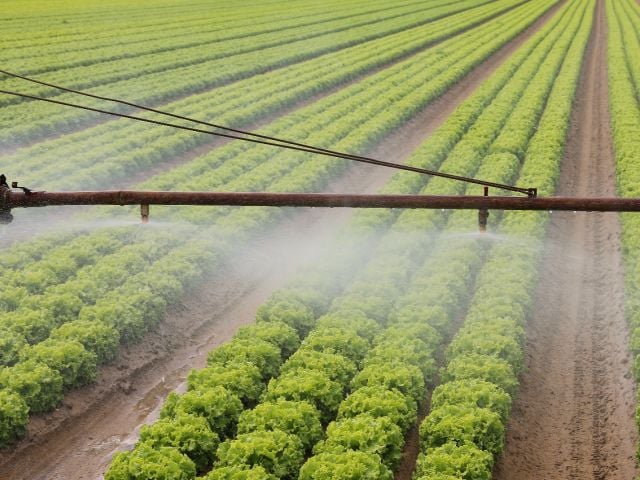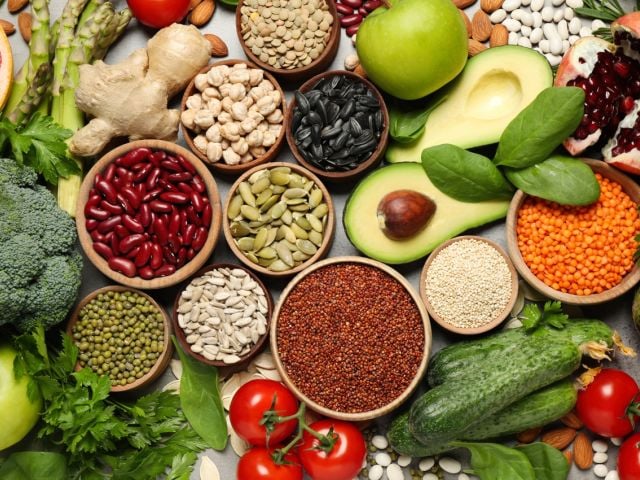WASHINGTON – The Environmental Working Group today applauded the Department of Agriculture for dedicating $1 billion to “climate smart” pilot projects designed to measure and verify practices that may reduce greenhouse gas emissions from farming, and said the agency should do more to focus its spending on practices that deliver real climate benefits.
EWG also called on the Senate to quickly pass the Build Back Better Act, legislation that would provide a historic investment of billions of dollars in incentives for farmers to adopt practices that reduce greenhouse gas emissions.
“Even if we stopped burning fossil fuels today, greenhouse gas emissions from food and farming could make a climate catastrophe unavoidable,” said EWG’s Legislative Director Colin O’Neil. “We need to do everything we can to reduce nitrous oxide, methane and carbon dioxide emissions from agriculture.”
USDA’s announcement states that funding will be provided for pilot projects that provide incentives to implement conservation practices that reduce greenhouse gas emissions and to measure, monitor and verify the greenhouse gas benefits associated with those practices.
A team of experts recently concluded that expected increases in agricultural greenhouse gas emissions – especially those caused by clearing, plowing and fertilizing land to grow crops and those generated by farm animals and their manure – make it unlikely that the Paris climate agreement’s goal of keeping global warming below 2 degrees Celsius can be met.
Plowing up grasslands and cutting down forests to cultivate land for agriculture unlocks carbon from soil, sending it into the atmosphere as carbon dioxide. Fertilizing the crops we grow for animal feed and ethanol produces nitrous oxide, a greenhouse gas 300 times more powerful than carbon dioxide, or CO2.
Farm animals eat this feed and produce manure, generating methane emissions. Cows also produce methane – 80 times more powerful than CO2 in the 20 years after it first reaches the atmosphere.
The Environmental Protection Agency estimates that U.S. agriculture accounts for about 10 percent of our greenhouse gas emissions. But after factoring in emissions from fertilizer production, as well as emissions from land clearing and plowing, it becomes clear that agriculture’s share of emissions is even higher.
Even as the transportation and energy emissions that contribute to the climate crisis are going down, emissions from agriculture are increasing. By 2050, greenhouse gas emissions from animals and the production of their feed could easily account for one-third of U.S. emissions.
“It’s critical that we invest in proven practices that actually reduce greenhouse gas emissions and not support gimmicks like ‘low carbon beef,’” O’Neil said. “Investment in better measurement and verification tools is badly needed.”
“Better management of fertilizer and animal feed will be a critical part of the solution,” O’Neil added.
Despite USDA’s announcement, EWG said it is critical the Senate quickly pass the Build Back Better bill passed by the House of Representatives in November. The bill provides $27 billion in incentives for farmers to adopt practices that reduce emissions.
But simply providing farmers with more financial incentives to try to get them to reduce their greenhouse gas emissions won’t be enough, O’Neil said.
“We must pursue a combination of activities – such as eating more plant-based foods, rethinking how we raise livestock, using fertilizers more carefully, ensuring voluntary conservation programs deliver meaningful climate benefits, reducing food waste and shifting production away from the most climate-intensive crops – if we hope to avoid a climate catastrophe,” O’Neil said.
“The facts are inescapable: If global protein demand doubles, as some predict, and most of that demand is met by animals raised here and abroad, incentives alone will do little to change the upward trajectory of emissions linked to meat,” O’Neil added.
Farmers are already bearing the brunt of climate change, studies show. A recent EWG study identified rising crop insurance claims linked to drought and excess moisture, two weather extremes directly tied to the climate crisis.
###
The Environmental Working Group is a nonprofit, non-partisan organization that empowers people to live healthier lives in a healthier environment. Through research, advocacy and unique education tools, EWG drives consumer choice and civic action. Visit www.ewg.org for more information.



.jpg?h=827069f2&itok=jxjHWjz5)